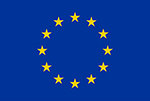
Infore 7th Plenary Meeting
12 Dec 2020 -
On 10-11 December, the 7th plenary meeting of the INFORE project was held, virtually due to the continuing COVID-19 situation. More than twenty-five attendees joined, reported progress, and agreed upon the actions for the challenging tasks that lay ahead.
During the first day of the meeting the focus was on the architecture, the Optimizer and the Complex Event Forecasting Components. With respect to the INFORE architecture, major progress has been made on integration and the platform for managing running, interactive analytics workflows over various clusters and Big Data platforms. Related to optimization, proof-of-concept demos on runtime adaptation were presented. Novel optimization algorithms specifically designed to exploit runtime adaptation facilities were added towards completing the pieces of the cross-platform, multi-cluster optimization puzzle. In addition, a presentation on the final version of INFORE’s data summarization engine followed. With respect to online machine learning and data mining components of the project, the focus was on the technical perspectives of extreme-scale model exploration for the evaluation of tumour treatment simulation con figurations, along with novel algorithms on early time series classification. Additionally, the complex event forecasting component was enhanced with implementation of additional parallelization options.
The second day of the meeting was devoted on the Life Science, Financial and Maritime Use cases. In the Life Science use case, research advances and the design of a prototype for extreme-scale model exploration for the evaluation of tumour treatment con figurations were presented. In the financial use case, there were important advances in the implementation of parallel forecasting algorithms for financial time series over Big Data platforms and the focus of ongoing work was set to enhanced visual analytics facilities. Regarding Maritime Situational Awareness, a main area of important progress was the fusion of imagery, AIS, acoustic data to enable efficient and accurate object (dark target) tracking. Considerable progress was also reported in vessel detection in MarineTraffic photos via the use of transfer learning techniques. Vessel detection models are intended not only for locating vessels, but also for identifing their type. A first suite of experiments with different configurations on HPC clusters shows very encouraging results. Furthermore, additional techniques for object detection based on acoustic data were presented. The first, real-world sea trial started early this week and is currently ongoing. The status of the pilot was reported, materials documenting the whole experiment are collected and will be reported in upcoming project deliverables.
The meeting was concluded with fruitful discussions and analysis of pending tasks.
Keywords: cross-platform analytics; interactive Big Data analytics; data streams
